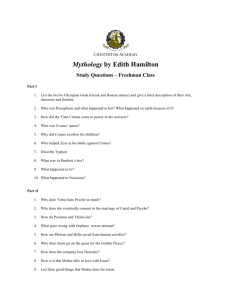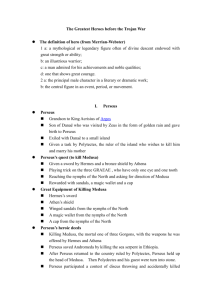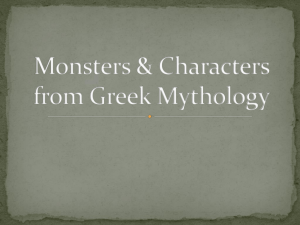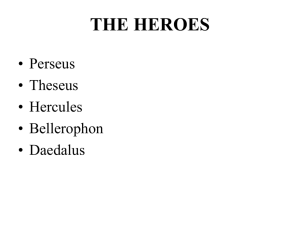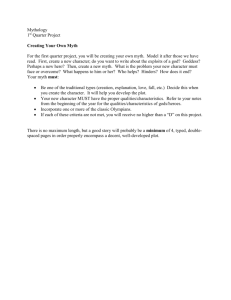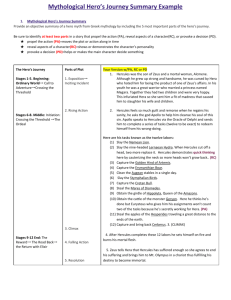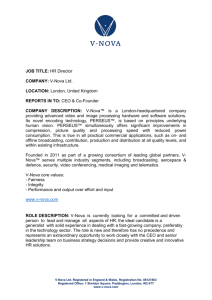File
advertisement
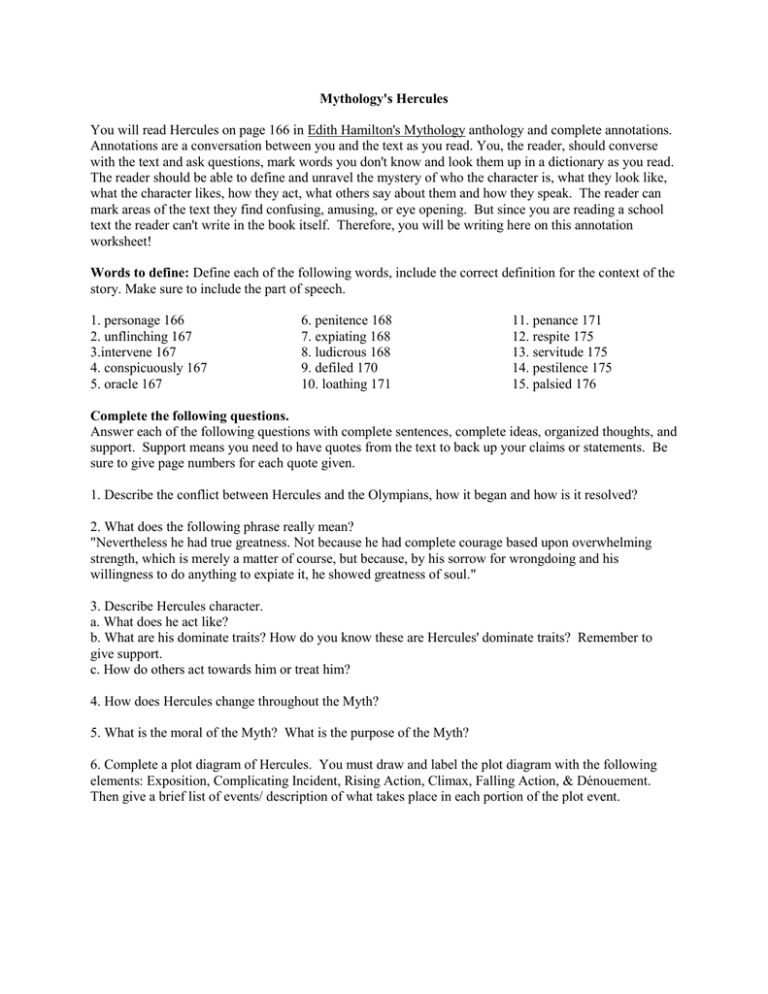
Mythology's Hercules You will read Hercules on page 166 in Edith Hamilton's Mythology anthology and complete annotations. Annotations are a conversation between you and the text as you read. You, the reader, should converse with the text and ask questions, mark words you don't know and look them up in a dictionary as you read. The reader should be able to define and unravel the mystery of who the character is, what they look like, what the character likes, how they act, what others say about them and how they speak. The reader can mark areas of the text they find confusing, amusing, or eye opening. But since you are reading a school text the reader can't write in the book itself. Therefore, you will be writing here on this annotation worksheet! Words to define: Define each of the following words, include the correct definition for the context of the story. Make sure to include the part of speech. 1. personage 166 2. unflinching 167 3.intervene 167 4. conspicuously 167 5. oracle 167 6. penitence 168 7. expiating 168 8. ludicrous 168 9. defiled 170 10. loathing 171 11. penance 171 12. respite 175 13. servitude 175 14. pestilence 175 15. palsied 176 Complete the following questions. Answer each of the following questions with complete sentences, complete ideas, organized thoughts, and support. Support means you need to have quotes from the text to back up your claims or statements. Be sure to give page numbers for each quote given. 1. Describe the conflict between Hercules and the Olympians, how it began and how is it resolved? 2. What does the following phrase really mean? "Nevertheless he had true greatness. Not because he had complete courage based upon overwhelming strength, which is merely a matter of course, but because, by his sorrow for wrongdoing and his willingness to do anything to expiate it, he showed greatness of soul." 3. Describe Hercules character. a. What does he act like? b. What are his dominate traits? How do you know these are Hercules' dominate traits? Remember to give support. c. How do others act towards him or treat him? 4. How does Hercules change throughout the Myth? 5. What is the moral of the Myth? What is the purpose of the Myth? 6. Complete a plot diagram of Hercules. You must draw and label the plot diagram with the following elements: Exposition, Complicating Incident, Rising Action, Climax, Falling Action, & Dénouement. Then give a brief list of events/ description of what takes place in each portion of the plot event. Mythology's Perseus Read Perseus on page 146 in Edith Hamilton's Mythology anthology and complete annotations. Words to define: Define each of the following words, include the correct definition for the context of the story. Make sure to include the part of speech. 1. folly 149 2. personage 149 3. abode 149 4. shrouded 149 5. withered 149 6. astray 150 7. revelry 151 8. wretched 153 9. deity 153 10. perpetually 153 Complete the following questions. Answer each of the following questions with complete sentences, complete ideas, organized thoughts, and support. Support means you need to have quotes from the text to back up your claims or statements. Be sure to give page numbers for each quote given. 1. In what ways are the characteristics of Hercules and Perseus alike and dislike? 2. Describe the conflict between Perseus and his grandfather and explain how it is resolved. 3. What are the dominate traits of Perseus? 4. Compare and contrast how the gods helped Hercules and how the gods helped Perseus? What were the gods motives for helping each of them? 5. Explain how the two myths (Perseus and Hercules) are connected to each other. 6. What is the moral of the Myth? What is the purpose of the Myth? 7. Complete a plot diagram of Perseus. You must draw and label the plot diagram with the following elements: Exposition, Complicating Incident, Rising Action, Climax, Falling Action, & Dénouement. Then give a brief list of events/ description of what takes place in each portion of the plot event.
